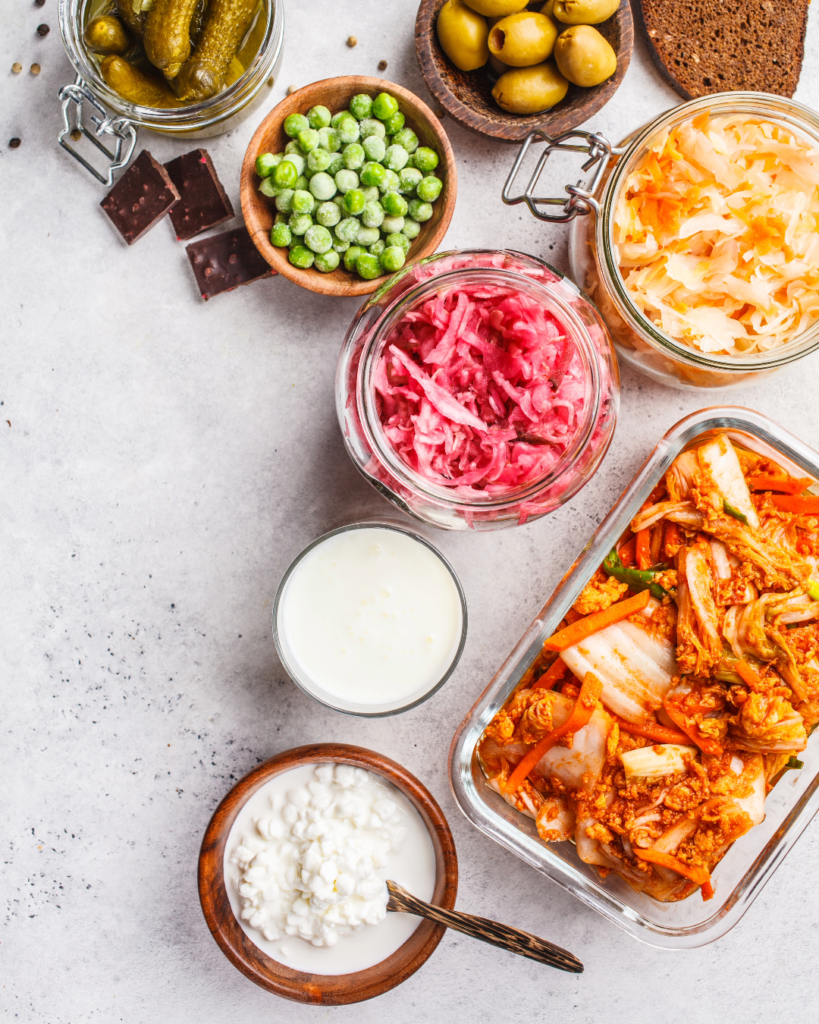The team at COLUMBIA pure understands the role played by gut health in our overall well-being and how it impacts everything from digestion to immunity and even mental health. In this informative blog post we will delve into the fascinating world of gut health and explore some of the ways your body will thank you for looking after your gut health and in turn your physical and mental health. Discover the connection between your gut and various aspects of your well-being and gain valuable insights into how you can nurture and support your body’s core.
The Gut Microbiome: Unveiling The World Within
The gut microbiome is sometimes referred to as our ‘second brain’ with a diverse community of trillions of microorganisms that all play a vital role in our well-being. These include bacteria, viruses, fungi and more – the combination of which is unique to every individual and is shaped by our genetic make-up, the environment in which we live and also our lifestyle.
Research has shown that our gut health plays a role far wider than simply taking care of digestion and nutrient absorption. It also impacts on our immune function and even mood regulation, influencing our well-being from the inner reaches of our bodies.
Nurturing Your Gut: The Role Of Diet And Nutrition
So how do you nurture your gut? As you might suspect, it’s a case of ‘you are what you eat’. Your diet has a direct influence on the composition and diversity of your gut microbiome so making sure you eat plenty of fibre, prebiotics (foods that will feed the microflora in your gut) such as onions, garlic, bananas, grains and nuts, as well as fermented foods can all promote the growth of good bacteria, leading to a balanced microbiome.
Many day-to-day foods are full of probiotics – live beneficial bacteria – and can be easily incorporated into your diet. Try to eat yoghurts, pickles, sauerkraut, kefir, kimchi, and even dark chocolate to enhance your gut health. Another great source of probiotic is the drink kombucha which is becoming ever more widely available and also in a range of flavours. What’s more, by adding plenty of grains, fruit and vegetables to your diet you will provide your gut with the fibre it needs to feed the microbiome and support a healthy digestive system.

Gut-Brain Connection: The Power Of The Enteric Nervous System
Believe it or not, the health of your gut is closely related to your mental well-being. The enteric nervous system is a complex network of nerves lining the gastrointestinal tract which communicates with the central nervous system, influencing our emotions and moods.
Researchers have found links between an imbalance in the gut microbiome – the technical name for this is dysbiosis – and mental health conditions such as anxiety, depression and even some neurodegenerative diseases. It therefore stands to reason that nurturing your gut health will have a positive effect on your mental well-being.
Healing The Gut: Strategies For Improving Gut Health
If you suspect that your gut health could be improved, there are steps you can take in addition to eating a healthy diet with foods rich in fibre and probiotics.
- Take up yoga, meditation or even deep breathing to help reduce stress.
- Make sure you drink plenty of water as it maintains the lining of your gut which acts as a barrier to harmful substances.
- Avoid overuse of antibiotics – making sure you only take them for treating bacterial infections and consider taking a supplementary probiotic following a course of antibiotics.
- Try to sleep for between seven and nine hours each night.
- Take up regular physical activity.
By nurturing your gut health you will have a positive impact on your entire well-being. Remember, your gut is far more than a digestive system, it is your own powerful ecosystem that deserves all the care and attention you can give it.
Disclaimer:
Please note, all content provided is for informational purposes, and is believed to be accurate and current at the time of posting. It should not, at any time, be used in place of appropriate professional or expert advice.



